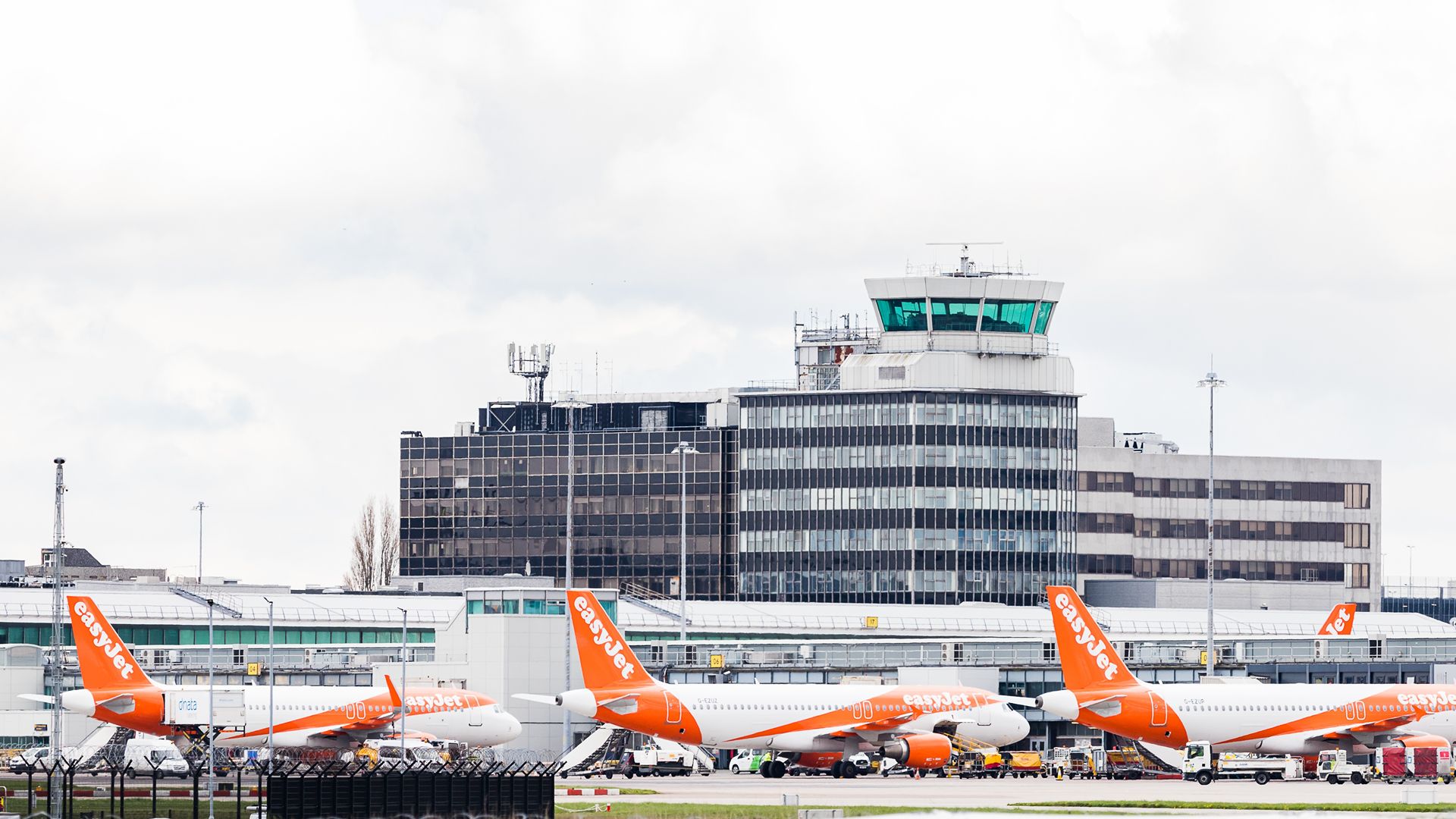World
Airlines Transition to Manchester Airport’s Enhanced Terminal 2

Several airlines are set to shift their operations to the newly refurbished Terminal 2 at Manchester Airport before the end of 2025. This transition is part of a broader transformation program designed to enhance the passenger experience at one of the UK’s busiest airports. Notably, carriers such as easyJet, which ranks among the largest airlines at the airport, will join others in relocating to the upgraded terminal.
Airlines Making the Move
In the coming weeks, airlines including Air Transat, Gulf Air, Norse Atlantic Airways, and SAS will begin their transition to the revamped Terminal 2. Air Transat is scheduled to be the first to relocate, making the change on November 2, followed by Gulf Air on November 5, Norse Atlantic Airways on November 7, and SAS on November 11. easyJet, which operates nearly 90 destinations from Manchester, will complete the series of moves with its relocation on November 19. These airlines will join others that have already made the transition, including Aer Lingus, British Airways, Finnair, and Luxair.
Passengers booked on flights with these airlines will receive updates regarding any changes. Travelers who have arranged Meet & Greet services, multi-storey parking, or lounge access in Terminals 1 or 3 can modify their bookings prior to arrival.
Advancements in Terminal 2 Facilities
The latest updates from Manchester Airport reveal that the new T2 Check-in East Zone A is operational. The facility boasts 200 self-service kiosks, 48 exception desks, 12 referral desks, and 24 hybrid desks, designed to streamline the check-in process and reduce wait times. This upgrade is part of a strategic effort to accommodate a growing number of passengers in the future.
Further developments in Terminal 2 include expansive retail and dining options. The terminal’s retail areas, known as The Boutique and The Avenue, will feature a mix of luxury and high-street brands. Additionally, the Great Northern Market—a large food hall—will have the capacity to seat nearly 500 diners. A new World Duty Free store, covering over 2,165 square metres, will significantly expand shopping options for travelers.
The transformation of Terminal 2 is a central component of Manchester Airport’s ambitious £1.3 billion ($1.71 billion) investment plan, which aims to enhance capacity and service quality. Originally announced in 2015, the first phase of the terminal’s renovation opened in 2021, and the project is now nearing completion. The initial phase focused on expanding the terminal’s footprint, while subsequent phases have concentrated on refurbishing the interior and constructing the new Pier 2.
The airport anticipates that by the end of this year, up to 80% of its passenger traffic will pass through the upgraded Terminal 2. Once fully operational, Terminal 1 will cease its operations, with all airlines relocating to either Terminal 2 or Terminal 3. Terminal 3 is expected to be designated for low-cost airlines, primarily accommodating Ryanair, and will see its passenger capacity increase by approximately 40%.
Manchester Airport’s ongoing transformation is set to significantly improve the travel experience for millions of passengers, ensuring the airport remains a key gateway for international travelers.
-

 Top Stories3 months ago
Top Stories3 months agoTributes Surge for 9-Year-Old Leon Briody After Cancer Battle
-

 Entertainment4 months ago
Entertainment4 months agoAimee Osbourne Joins Family for Emotional Tribute to Ozzy
-

 Politics4 months ago
Politics4 months agoDanny Healy-Rae Considers Complaint After Altercation with Garda
-

 Top Stories4 months ago
Top Stories4 months agoIreland Enjoys Summer Heat as Hurricane Erin Approaches Atlantic
-

 World5 months ago
World5 months agoHawaii Commemorates 80 Years Since Hiroshima Bombing with Ceremony
-

 Top Stories3 months ago
Top Stories3 months agoNewcastle West Woman Patricia Foley Found Safe After Urgent Search
-

 Top Stories5 months ago
Top Stories5 months agoFianna Fáil TDs Urgently Consider Maire Geoghegan-Quinn for Presidency
-

 World5 months ago
World5 months agoCouple Convicted of Murdering Two-Year-Old Grandson in Wales
-

 World5 months ago
World5 months agoGaza Aid Distribution Tragedy: 20 Killed Amid Ongoing Violence
-

 World5 months ago
World5 months agoAristocrat Constance Marten and Partner Convicted of Infant Murder
-

 Top Stories4 months ago
Top Stories4 months agoClimbing Errigal: A Must-Do Summer Adventure in Donegal
-

 Top Stories4 months ago
Top Stories4 months agoHike Donegal’s Errigal Mountain NOW for Unforgettable Summer Views









